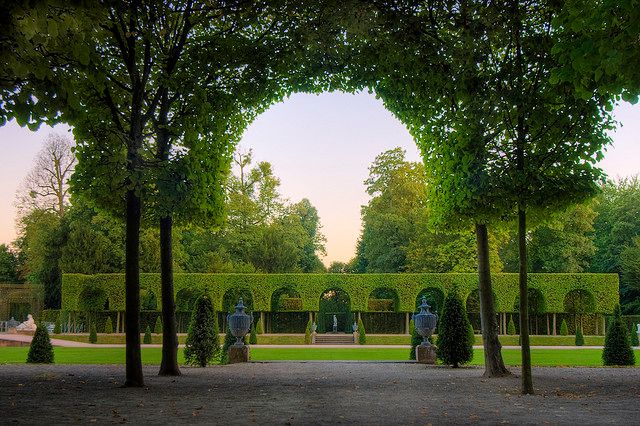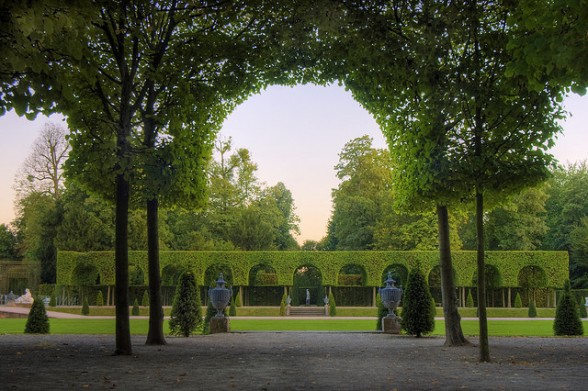Beyond the Green Khutbah – the Eco Friendly Mosque

By Naeem Siddiqi
(April 12, 2014) – On Friday April 14th, coinciding with Earth Day, many mosques will be delivering ‘Green’ khutbah’s.
This is an excellent idea – and based on history, you will no doubt hear of all the ahadiths, ayats and stories of the Prophets that will confirm the notion that Muslims should be the worlds most ecologically aware and responsible people.
In many of the same masajid however, right after the Green khutbah, you will be asked to buy biryani, fried chicken and other delights in Styrofoam containers.
You will buy bottled water, cans of pop and you’ll be handed disposable cutlery.
Once you’ve finished eating and drinking, you will throw it all in the garbage bins destined for Michigan since you will not find any recycling boxes.
During Ramadhan, the mosque management and other well meaning people will leave crates of bottled water in the masjid for the thirsty, both at iftar and taraweeh. Those bottles also go right in the garbage.
There is something wrong with that picture. In Canada, we are used to recycling in our homes and offices. Why shouldn’t we do the same in mosques? Its not that difficult – there are some very simple things that can be done to underline our commitment to the environment. Practice what we preach.
1. Ban water bottles: water bottles have been linked to plastic waste in oceans, leaching of chemicals into the soil and depletion of water aquifers. In a response to these concerns numerous municipalities, universities and offices have banned bottled water. In Toronto, you can’t sell water in city offices, parks and facilities. The mosque should encourage a policy of ‘bring your own reusable bottle’ and direct people to water fountains. We get some of the finest quality water right from the tap in this country. Use it. Get reusable bottles produced with your logo on it and sell it to the congregation.
2. Get some Recycling Boxes: This one is easy, and doesn’t need a lot of education. Most Canadians know what a blue box looks like and what its for. All you need to do is put some around the mosque. This will reduce the amount of recyclable material that ends up in garbage hills.
3. Try Bring Your Own Cutlery: For events where you would normally use disposable plates (paper or Styrofoam), try asking people to bring their own plates, mugs and forks. Iftars, community potlucks and BBQ’s are occasions where this can be very successful.
4. Use efficient light bulbs, and more natural lighting. There is no reason to have that giant chandelier lit up for Dhuhr and Asr.
5. Start a compost heap: This one will take some work but if you have a school or an Environment Committee, its an excellent project. Take the food and other organic waste that normally ends up in the garbage and make compost from it. If you have a garden, this will make excellent fertilizer.
6. Get solar panels: this might be tricky on a dome, but if there is flat space at the mosque, get some solar panels installed. These things pay back in terms of both cutting energy bills, and selling excess capacity, and help the environment. If you’re feeling particularly advanced, try a wind turbine.
7. Save Water: Doing the wudhu does not have to be an exercise in wasting water. An excellent system I have seen in some mosques is infra red sensors that control water flow as needed, rather than continuous flow. Some buildings have systems to re-use this sort of water for watering plants for example. Rain water barrels are also a great idea for water that can be used for plants or cleaning.
8. Build a green masjid: if you’re planning to build a masjid somewhere, use some widely practiced design principles to save energy. Things like using more natural lighting, more south facing windows, water reclamation, rooftop gardens, more efficient HVAC systems and using recycled and lower volatility organic materials are just some ideas that have been applied globally to create more sustainable space.
There are some excellent resources online including Khaleafa (http://khaleafa.com/); The Eco Muslim (http://www.theecomuslim.com/) and Green Muslims (http://www.greenmuslims.org/). If you are a congregant, talk to the folks running the masjid and encourage them to adopt better practices. If they’re delivering Green Khutbah’s, they should be open to your ideas. Volunteer to implement some of these ideas – like paying for the water bottles or blue recycling boxes. If you’re handy in the garden, volunteer to help start a small community garden or compost heap. Maybe next year, you will be buying your biryani in your own reusable container and drinking water from a re-usable water bottle.

